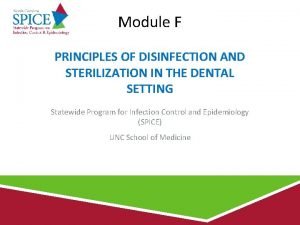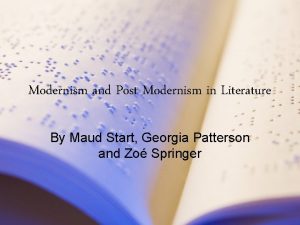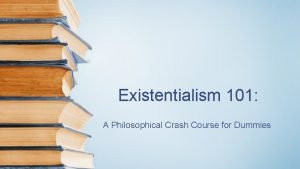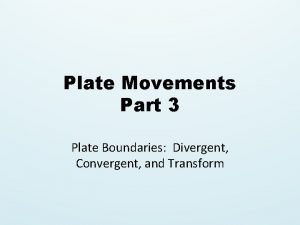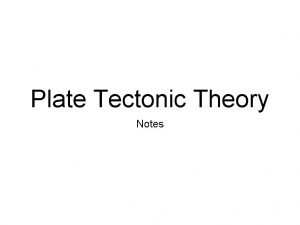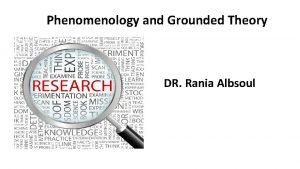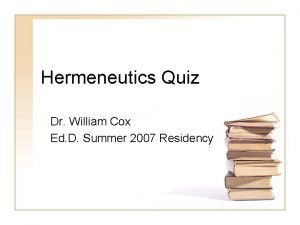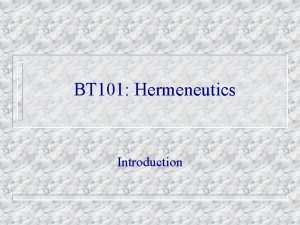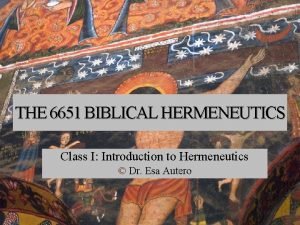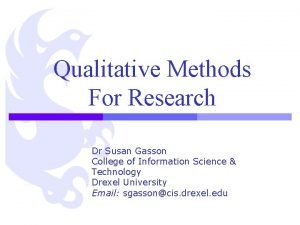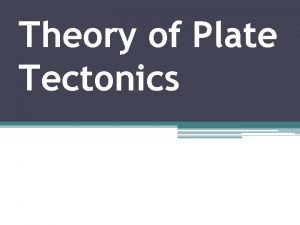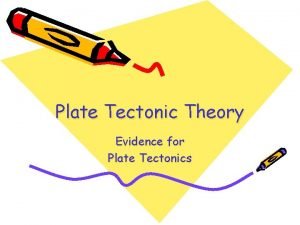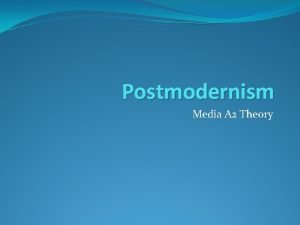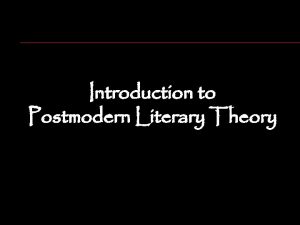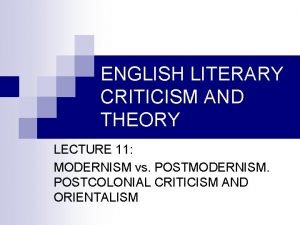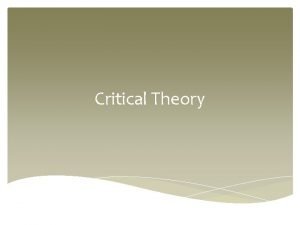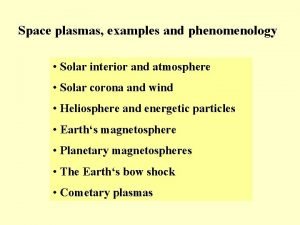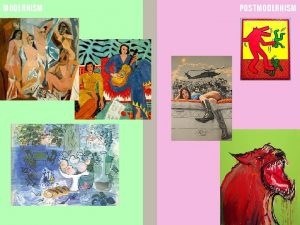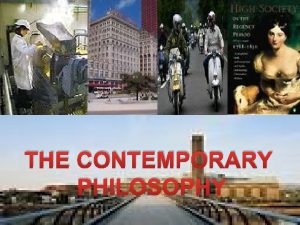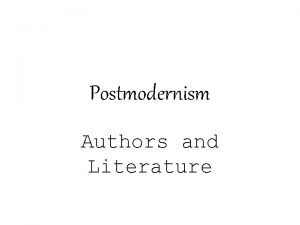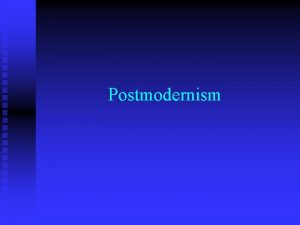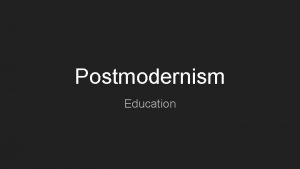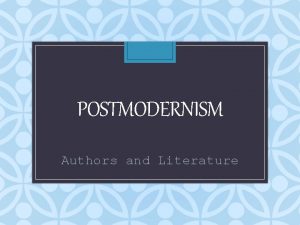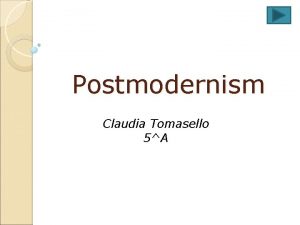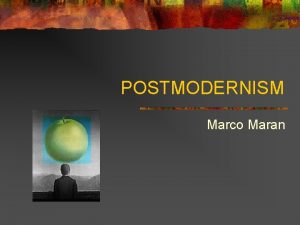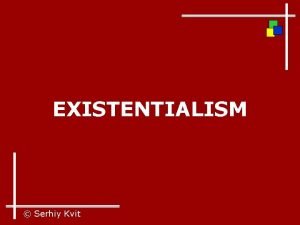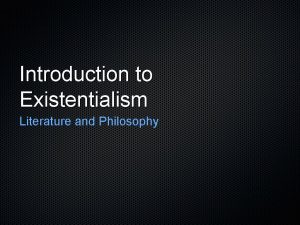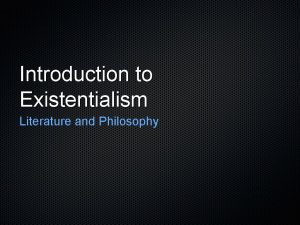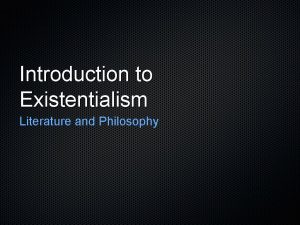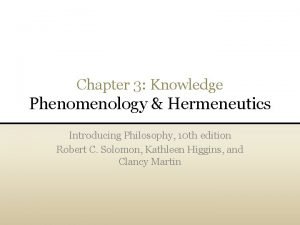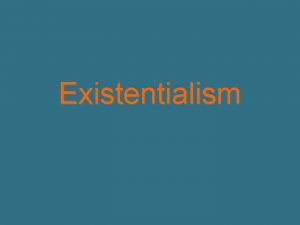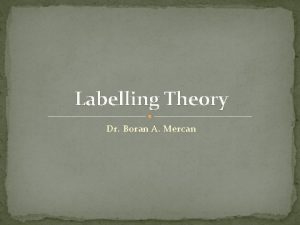Continental philosophy Existentialism Phenomenology Critical theory Hermeneutics Postmodernism



















- Slides: 19

Continental philosophy • • • Existentialism Phenomenology Critical theory Hermeneutics Postmodernism

Existentialism

“Existentialism cannot properly be called a philosophical school because it contains too many thinkers holding contradictory positions and because existentialists usually reject systematic philosophy, schools of thought, and the like. ”

The belief that philosophical thinking begins with the human subject, not the thinking subject, and the manifestation of these individuals.

Søren Kierkegaard (1813 -55) • Considered to be the first philosopher in this. Felt each individual is responsible for giving meaning to life and living it “authentically. ” • His work focused on religion, and the difference between the relationship of people to church, and an individuals relationship with Jesus Christ.

• Maxine Greene has discussed major themes such as Alienation, the centrality of human connection and relation, the need for awareness or “wide-awakeness, ” and freedom. • Greene felt human beings have construed freedom.

• How could existentialism thinking, or parts of it, benefit an educator when applied to classroom management or the understanding of students?

“Existentialists, however, resist some later developments of rationalism. They usually reject abstrations like Piaget’s epistemological subject or other attempts to characterize mental life in terms of fixed categories or operations. ”

Phenomenology

• The study of the structures of subjective experience and consciousness.

“Educational philosophers have little reason to engage in technical phenomenology as it was established by Husserl, but many of us use methods familiar to scholars … We set out to study something like hope or truth or faith and systematically vary the situations in which such terms are used to capture characteristics. ”

Critical Theory

• According to Marx, “the self-clarification of the struggles and wishes of the age” • Articles on racism, sexism, and classism often draw directly on the work of critical theorists.

Hermeneutics

• The art of text association • Often associated with biblical texts

Postmodernism

“More of a mood than a movement. ” Noddings

• Postmodern thinkers have left the enlightenment quest for the absolute truth. • Against objectivity. • Challenges assumptions, methods, atitutdes, modes of thought, and values.

“Thoughtful educators should be aware of ways in which its proponents help us to think better about educational problems, but they should also be wary of accounts that merely use postmodern buzzwords. ” Noddings
 Critical race theory tenets
Critical race theory tenets Hermeneuin
Hermeneuin Critical semi critical and non critical instruments
Critical semi critical and non critical instruments Semi-critical
Semi-critical Postmodernism literature
Postmodernism literature Existentialism 101
Existentialism 101 Convergent boundary
Convergent boundary Convergent continental boundary
Convergent continental boundary Interpretive phenomenology
Interpretive phenomenology Hermeneutics quiz
Hermeneutics quiz Hermeneutics 101
Hermeneutics 101 Hermeneutics class
Hermeneutics class Hermeneutics
Hermeneutics Continental drift vs plate tectonics theory
Continental drift vs plate tectonics theory Continental drift vs plate tectonics
Continental drift vs plate tectonics Postmodernism media definition
Postmodernism media definition Postmodernism theory in literature
Postmodernism theory in literature Postmodernism
Postmodernism Critical theory in criminology
Critical theory in criminology Phenomenology examples
Phenomenology examples



